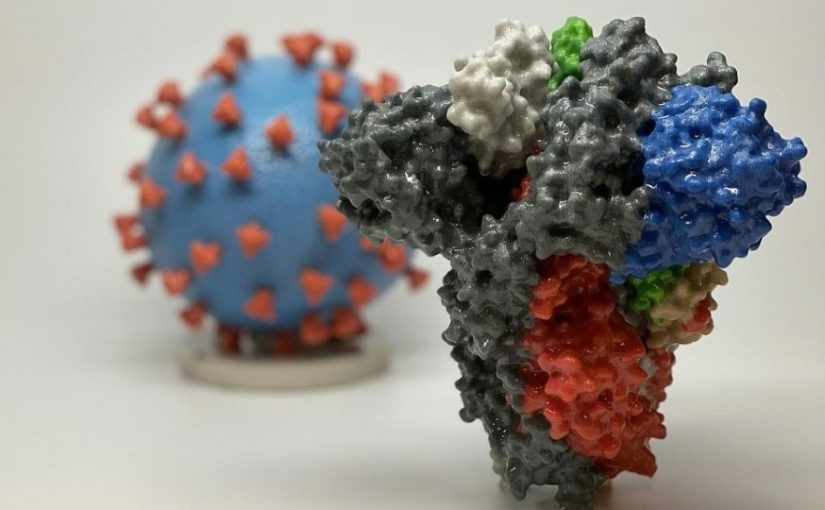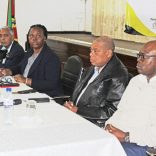Mozambique: Head of Sofala Anti-Drugs Program warns of dealers disguising themselves as students to ...
Mozambique: Presence of new coronavirus variant confirmed – AIM report

Image: AFP
Mozambican Health Minister Armindo Tiago confirmed in Maputo on Wednesday that the new South African variant of the coronavirus that causes the Covid-19 respiratory disease has been detected in Mozambique.
He told reporters that this mutation of the virus has been circulating in Mozambique since November (that is, since before it was officially identified in South Africa).
Tiago was speaking during a visit to the Mavalane General Hospital, where work is under way to remodel three buildings and erect a giant tent for patients suffering from Covid-19.
“We sent samples to South Africa and to other countries”, said the Minister, “and we’ve now received the result. The results indicate that the new variant has been circulating in Mozambique, since November”. Furthermore, 70 per cent of the samples from December proved to be formed by the new variant.
There is nothing surprising about this. Since Mozambique and South Africa are neighbours and since, despite the South African lockdown, there has been intensive movement across the border, it was inevitable that, sooner or later, the new mutation would show up in Mozambique.
Tiago said that there would be no point in drawing up a plan to eliminate the new variant of the virus. Mozambicans should, instead, scrupulously implement the existing preventive measures, which had already proven their effectiveness in impeding the spread of the coronavirus, whatever its mutation.
Since the New Year, there has been a sharp rise in the number of Covid-19 infections, hospitalisations and deaths. Although the new variant, which is more easily transmitted than the original coronavirus, may have contributed to this, Tiago believed the deteriorating situation was also caused by the relaxation of the preventive measures.
Many Mozambicans simply ignored the Health Ministry’s recommendations to avoid large gatherings during the festive season. Social distancing was widely ignored, and there has been a drastic reduction in the number of people wearing masks in public places.
Tiago understood that the increase in cases in January could lead to fear or panic “but the message we want to transmit to our people is that fear will not solve the problems. Fear only divides us. This is a war where we only have one enemy, the coronavirus”.
Tiago also announced that the government already has some of the funds necessary to acquire vaccines against Covid-19.
The government wants to start vaccinating priority groups, notably health professionals, by February or March. Since vaccines from the Covax initiative, operated by the World Health Organisation (WHO), are unlikely to be available before May, the government must buy vaccines on the market, if it wants to speed up vaccination.
Tiago said the immediate problems is not finance, but the availability of the vaccines on the world market. “As we are all witnessing, obtaining the vaccine is proving difficult even for European countries”, he pointed out. “But we shall do all we can to ensure that the vaccine is available for priority groups between February and March. For the others, we shall continue the vaccination until 2022”.
Tiago declined to say how much the government will pay for the vaccines, or where they will come from.
Asked if Mozambique can guarantee the storage conditions for Covid-19 vaccines, Tiago said his Ministry will only acquire vaccines that are compatible with the existing cold chain structures.
“The vaccines we shall admit in Mozambique are not those that require storage at minus 70 or 80 degrees Celsius”, he added. “We want to acquire those which are appropriate for our conservation conditions. So we shall acquire vaccines that are stored at between minus two and eight degrees”.












Leave a Reply
Be the First to Comment!
You must be logged in to post a comment.
You must be logged in to post a comment.